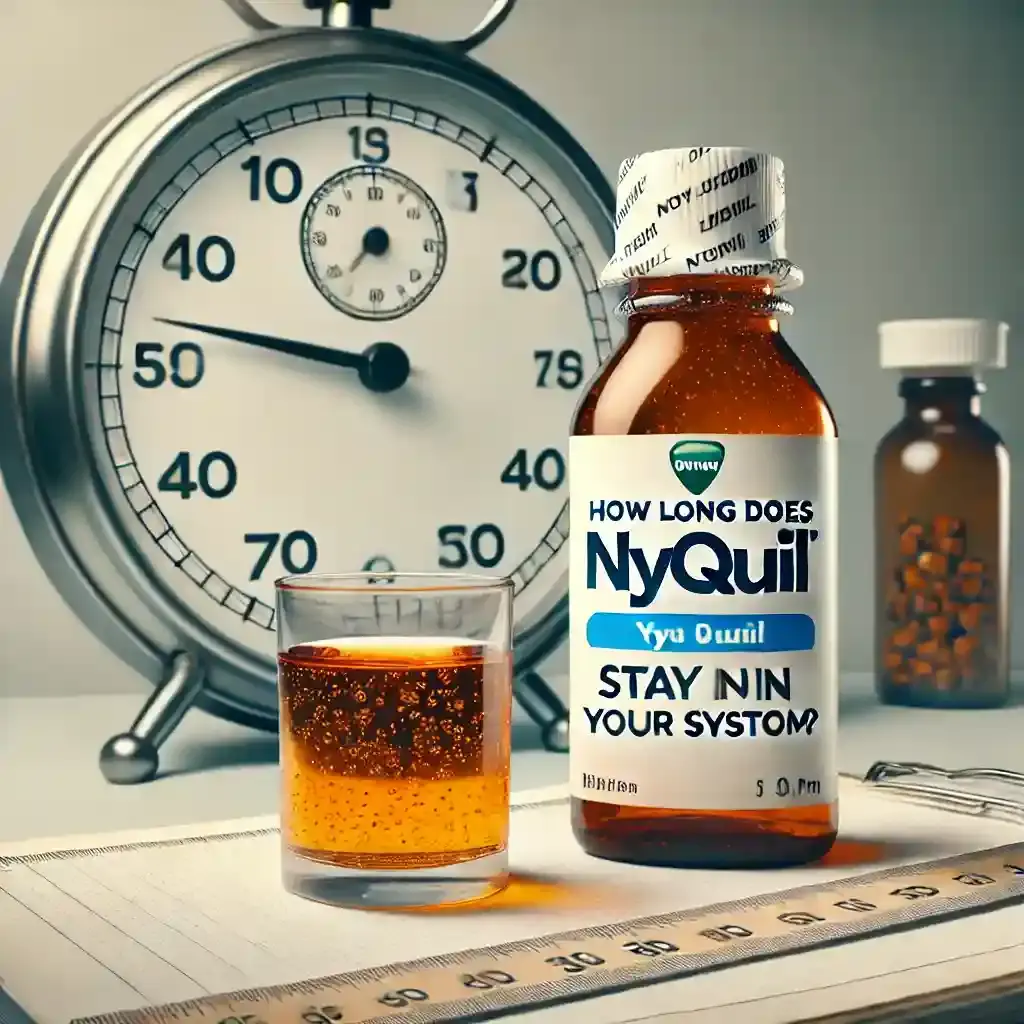Though pregnancy is a beautiful journey, morning sickness can make it a little bit challenging. Doxinate Tablet is the best medicine formulated to relieve morning sickness, also known as vomiting and nausea, helping women to feel good and enjoy this special phase. Let's explore the article and learn about the Doxinate tablet- its uses, benefits, side effects, and many more facts about it.
Doxinate Tablet Uses
Doxinate Tablet or Doxylamine-Pyridoxine Tablet is a prescription medicine used to treat conditions of feeling sick during pregnancy. This may include:
-
Nausea
-
Vomiting
-
Hyperemesis gravidarum (severe form of pregnancy-related nausea and vomiting)
Also, it provides nourishment to the body. It consists of 2 active ingredients:
-
Doxylamine (an antihistamine): Blocks substances that cause nausea and vomiting.
-
Pyridoxine (Vitamin B6): Manages potential vitamin deficiencies that can contribute to nausea and vomiting.
Doxinate Tablet Dosage
Typically, the dosage depends on your medical condition, age, and body weight.
-
In general, one tablet is recommended to take at bedtime.
-
In severe cases, the dose is increased by 1 tablet in the morning and 1 in mid-afternoon.
What to do in case of overdose and missed dose:
-
Missed Dose: In case of a missed dose, take the dose when you remember. But, skip the dose if the time to take another dose is close. Avoid double-dosing.
-
Overdose: If you experience doxinate overdose symptoms like lightheadedness, irregular heartbeat, dry mouth, enlarged pupils, restlessness, mental confusion, and sleepiness, seek emergency help by calling 911 or 1-800-222-1222 (a Poison Control Center).
How to Take Doxinate?
Directions for use:
-
Take a tablet by mouth on an empty stomach or as directed by your doctor.
-
Swallow the tablet as a whole with a glass of water.
-
Don’t break, crush, or chew tablets.
Important Considerations:
-
Do not take the dose more than the prescribed amount.
-
Don’t stop using the medicine without a doctor’s guidance.
-
Avoid taking it with food for better results.
Benefits of Doxinate Tablets
The following are the benefits of taking Doxinate tablets:
-
Prevents Morning Sickness: A study says that doxylamine prevents nausea and vomiting by stopping the histaminergic signals from reaching the vomiting center in the brain.
-
Provides Nutrition: Contains Pyridoxine, a Vitamin B6, which helps improve vitamin B6 levels in the body.
-
Supports Fetal Development: The vitamin B6 in this medicine supports the development of the brain and nervous system in the growing baby.
-
Prevents Dehydration: Reduces the risk of excessive vomiting (seen in hyperemesis gravidarum), which retains fluids and maintains hydration levels.
-
Prevents Nutrient Loss: By controlling vomiting, it aids in retaining vital minerals and vitamins from food.
How Do Doxylamine-Pyridoxine Tablets Work?
This is how doxinate tablets work to reduce morning sickness:
-
Blocks Histamine: Doxylamine in Doxinate tablets is an antihistamine that blocks the signals of nausea and vomiting in the brain.
-
Regulates Neurotransmitters: Pyridoxine aids in balancing brain chemicals that are involved in controlling nausea.
-
Prevents Overstimulation of Vomiting Center: Doxylamine & Pyridoxine both calm down the brain area that triggers nausea.
This dual action makes Doxinate tablets a safe and effective choice for preventing morning sickness during pregnancy.
Doxinate Tablet Side Effects
The medicine is generally safe, well-tolerated, and intended for use only in pregnant women. If side effects occur, they subside after the body adjusts to the medicine. However, if they worsen or persist, seek medical help.
Common Side Effects:
-
Feeling sleepy
-
Drowsiness
-
Dizziness
-
Dry mouth
-
Headache
-
Blurred vision
-
Constipation
Severe Side Effects:
In severe cases, some patients may experience allergic reactions that need immediate medical attention. The symptoms of allergic reactions are:
-
Skin rash
-
Itching
-
Difficulty breathing
-
Swelling of the face, lips, and tongue
Precautions While Taking Doxylamine-Pyridoxine Tablet
Consider these safety measures while taking Doxinate tablets:
-
Hypersensitivity: Avoid this medicine if you have allergies to any of its ingredients to prevent further health risks.
-
Pre-existing Medical Conditions: Discuss your medical conditions, such as asthma, narrow-angle glaucoma, increased eye pressure, a blockage in the gut, and stomach ulcers with your doctor to prevent the worsening of the condition.
-
Other Current Medications: Inform the healthcare providers if you are taking pain relievers, sleeping medicines, or medications for cough, cold, or depression.
-
Alcohol: Avoid mixing alcohol and Doxinate tablets as it may lead to dizziness, impaired thinking, difficulty concentrating, etc., which can cause accidents or fall risks.
-
Breastfeeding: Probably unsafe during breastfeeding. Research reports that higher doses or long-term use of doxylamine may lower milk supply and cause drowsiness or other adverse effects on the nursing baby.
-
Driving: As this medicine may decrease alertness, it may make you feel dizzy and sleepy or impact your vision. So, avoid driving.
-
Chronic Liver Issues: People with chronic liver disorders should use the medicine with caution. Doctors may adjust the dose as needed.
-
Use in Children: Not recommended to use in children under 18 years of age. So, always seek medical advice before using it.
Interactions of Doxinate Tablets
1. Interactions with other medicines
Doxinate may interact with other medications, which can worsen the side effects of Doxinate. So, always discuss them with your doctor. Those medicines include:
-
Depression medications like monoamine oxidase inhibitors (MAOIs)
-
Central nervous system depressants like barbiturates
-
Pain medicines such as ibuprofen or aspirin
-
Sleeping pills such as melatonin, zolpidem, and temazepam
2. Interactions with food items
Avoid taking Doxinate tablets with food as foods can slow down its absorption, which lowers the ability of the medicine to prevent nausea.
Diet and Lifestyle Advice While Taking Doxinate Tablet
Follow these dietary and lifestyle tips to maximize the effects of doxinate tablets:
-
Consume small and more frequent meals: Prevents nausea and maintains energy levels.
-
Avoid oily or spicy foods: These foods should be avoided as they trigger nausea, vomiting, and stomach discomfort.
-
Stay hydrated: Drink a lot of water, soups, or coconut water to prevent the risk of dehydration.
-
Get enough sleep: Prevents worsening of nausea, so aim to get 7-9 hours of quality sleep.
-
Practice light physical activities: Go for a walk after eating food that can ease digestion.
-
Avoid lying down immediately post-meals: This alleviates the risk of acid reflux and stomach discomfort.
Storage & Disposal of Doxinate Tablets
-
Store the tablet below 25°C in a dry and clean place away from direct sunlight, heat, and moisture.
-
Keep it away from your children and pets.
-
Avoid its use once it expires.
-
Do not use it if the packaging is damaged.
-
Don't flush it on the toilet or throw it in the drain. Discard it properly when it expires.
Substitutes for Doxinate Tablet
Always consult the healthcare providers before using these substitutes:
-
Nosic 10mg/10mg Tablet
-
Doxyla B6 10mg/10mg Tablet
-
Pregnidoxin NU 10mg Tablet
-
Goodmorn Tablet
-
Rest Aid Tablet
-
Lami 6 Plus Tablet
-
Vomiwon Tablet
-
Gomo Tablet
-
Vomibune Tablet
-
Nuxydox Tablet
-
DSX 10mg/10mg Tablet
-
Vomilast-G Ginger Flavour Tablet 30'S
-
Damoxy Tablet
-
Act Nvp Tablet
-
Omnidox 10mg/10mg Tablet
-
Natural Remedies such as ginger and acupressure
Final Thoughts
Doxinate tablets are the most effective medicines prescribed during pregnancy to treat nausea and vomiting. However, always use the dose as recommended to avoid the risk of side effects. Also, do not use them if you are allergic to its ingredients. If you experience any side effects that worsen or persist, consult your doctor; they may change the medication or stop its use. Make sure to always discuss your other medications and pre-existing health conditions with the providers to avoid further health complications.

Reviewed by







